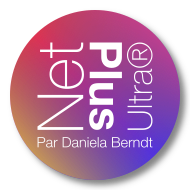Second Life, Christian Stöcker, Goldmann Verlag, 2007.
04/2011
Ausschnittsquelle: Einführungskapitel "Willkommen im digitalen Wunderland"."'Second Life' ist die Zukunft des Internet. Sagen manche. Die virtuelle Welt von 'Second Life' wird der wirklichen sogar den Rang ablaufen, schon bald. Sagen andere. 'Second Life' ist lediglich von den Medien inszenierter Hype. Wenden die Skeptiker ein. Doch der Hype hat Substanz: Die virtuelle 'Second Life'-Welt, für die jeder, der Lust dazu hat, sich ganz nach Belieben seine Spielfigur, einen sogenannten Avatar, erschaffen kann, wurde in den späten Neunzigern gegründet; für alle geöffnet wurde die Online-Plattform im Jahr 2003. Mittlerweile haben sich bereits knapp sechs Millionen Menschen angemeldet und sind mit ihrem Avatar wenigstens einmal ins digitale Wunderland gereist."

